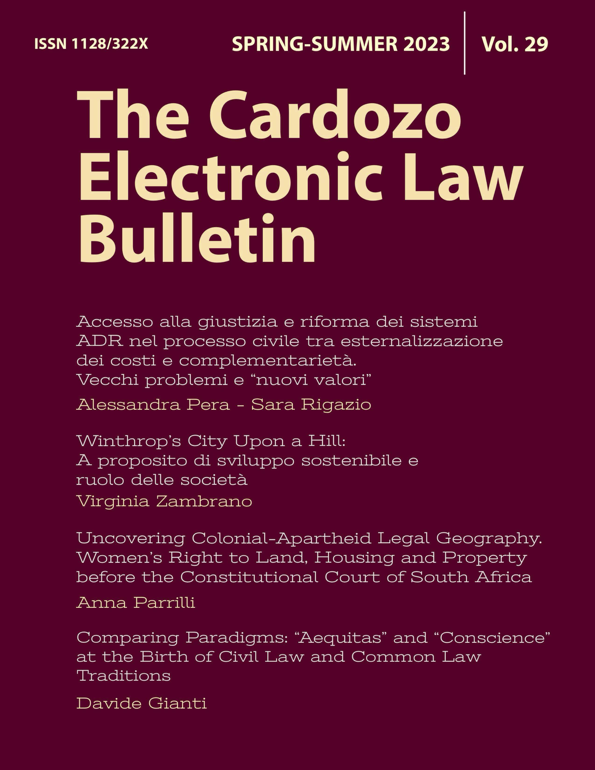UNCOVERING COLONIAL-APARTHEID LEGAL GEOGRAPHY.
WOMEN’S RIGHT TO LAND, HOUSING AND PROPERTY BEFORE THE CONSTITUTIONAL COURT OF SOUTH AFRICA
DOI:
https://doi.org/10.13135/1128-322X/8446Parole chiave:
Land, race, gender, women’s rights, property rights, apartheid, legal geography, intersectional approach, South Africa.Abstract
The article discusses the innovative approach adopted by the Constitutional court of South Africa towards women’s land, housing, and property rights in two landmark decisions: Daniels v. Scribante (2017) and Rahube v. Rahube (2018). The first section introduces the notion of “apartheid geography” and the land reforms promoted by the South African national government since 1994. The second section discusses the Daniels and Rahube cases. In these rulings, the judges partially departed from the traditional legal methods and reasoning by reading the impugned provisions through the lens of legal geography. The last section deals with the gendered approach adopted by the court in Daniels and Rahube and the implications with regard to the protection of women’s land and property rights. The aim is to highlight the Constitutional court capacity to uncover the resilience of colonial and apartheid spatial logic in contemporary South African legal system by combining legal geography methodology and the intersectional approach to land, race, and gender.






